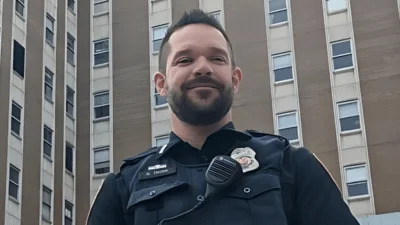Dora Elizabeth Drake, Wisconsin State Senator for 4th District | Facebook
Dora Elizabeth Drake, Wisconsin State Senator for 4th District | Facebook
According to the Wisconsin State Legislature's official website, the bill was described as follows: "the use of speed safety camera systems and traffic control photographic systems in a first class city and providing a penalty. (FE)".
The following is our breakdown, based on the actual bill text, and may include interpretation to clarify its provisions.
In essence, this bill permits first-class cities, currently only Milwaukee, to use speed safety camera systems (SSCS) and traffic control photographic systems (TCPS) to monitor and identify traffic violations. SSCS will detect speed violations exceeding 15 mph over the limit, while TCPS will capture vehicles failing to stop at red lights. Violators, primarily vehicle owners, will face forfeitures aligned with existing penalties but will not accrue demerit points or face license suspensions. Both systems are initially authorized for five years after implementation, with collected forfeitures funding system operations and traffic safety initiatives. The bill mandates public awareness campaigns, proper equipment installation, and operator training, alongside periodic evaluations of the systems' impacts and transparency of data usage.
The bill was co-authored by Rep. Todd Novak (Republican-51st District), Sen. Tim Carpenter (Democrat-3rd District), Sen. Jodi Habush Sinykin (Democrat-8th District), Sen. Jesse L. James (Republican-23rd District), and Sen. LaTonya Johnson (Democrat-6th District). It was co-sponsored by Rep. Margaret Arney (Democrat-18th District), Rep. Robert Brooks (Republican-59th District), and Rep. Cindi Duchow (Republican-97th District), along with 13 other co-sponsors.
Dora E. Drake has authored or co-authored another 61 bills since the beginning of the 2025 session, with none of them being enacted.
Drake graduated from Marquette University in 2015 with a BA.
Drake, a Democrat, was elected to the Wisconsin State Senate in 2024 to represent the state's 4th Senate district, replacing previous state senator Lena Taylor.
In Wisconsin, the legislative process starts when a senator, constituent, group, or agency proposes an idea for a bill. After drafting, the bill is introduced, numbered, and referred to a committee for review and public input. If approved, it moves through three readings and votes in both the Senate and Assembly. Once both chambers pass the same version, the bill goes to the governor, who can sign it, veto it, or let it become law without a signature. Only a small share of bills introduced each session ultimately become law. You can learn more about the Wisconsin legislative process here.
| Bill Number | Date Introduced | Short Description |
|---|---|---|
| SB375 | 07/16/2025 | The use of speed safety camera systems and traffic control photographic systems in a first class city and providing a penalty. (FE) |
| SB346 | 06/27/2025 | Grants for prospective school social workers, granting rule-making authority, and making an appropriation. (FE) |
| SB187 | 04/14/2025 | Study of guaranteed employment grant program and making an appropriation. (FE) |






 Alerts Sign-up
Alerts Sign-up